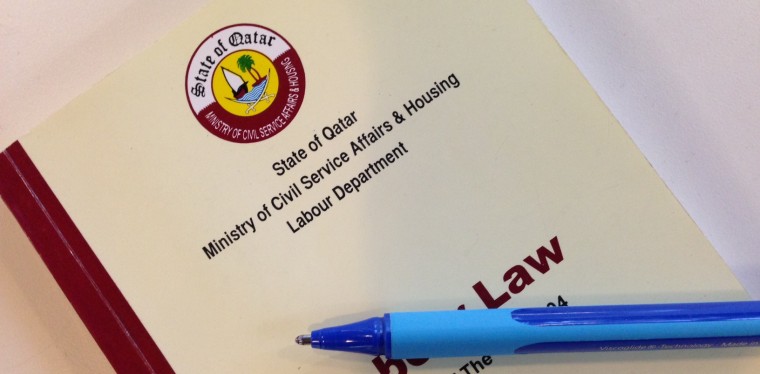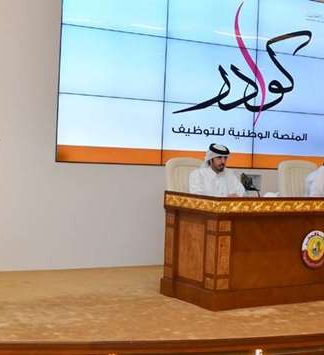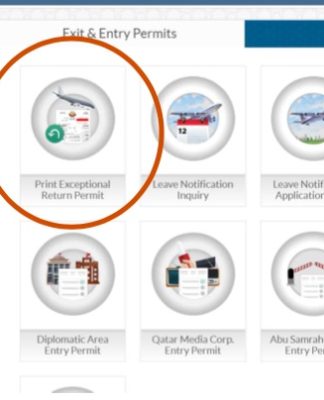Whether you are exploring career opportunities in Qatar or already working here, you must be aware of your rights and duties as an employee.
Here are some essential points compiled from the Qatar Labour Law, Ministry of Interior directives and tips from HR professionals:
1. Before signing an employment contract
Make sure you’ve understood it completely. Contracts submitted to the labour ministry are bi-lingual. Ensure you’ve checked both parts of it. According to the Qatar Labour Law, the following articles must be clearly specified on a contract:
- Name of employer, place of work
- Name, qualifications, nationality, profession and residence of the worker and the proof necessary for his identification
- Date of conclusion of the contract
- Nature and type of work and place of contracting
- Date of commencement of work
- Period of the contract if it is of a definite duration
- The agreed wage and the method and date of the payment
It’s the employer’s responsibility to take care of your visa expenses.
In addition, also read through and clarify any additional clauses that the employer may have added to the contract.
Now would be a good time, before signing the employment contract, to request for a clause that would allow you to change sponsors in future. But, be aware that not all companies have this policy.
2. Overtime dues
The Qatar Labour Law specifies that if an employer requires workers to work above the regular working hours per day, then this should not exceed 10 hours unless the work is necessary to prevent gross loss or dangerous accident or for repair/alleviation of the consequences of said loss/accident.
The compensation should not be less than the basic wage plus not less than 25% thereof.
[boxify cols_use =”1″ cols =”2″ position =”right” box_spacing =”5″ padding =”10″ background_color =”#3c3c3c” ]If an employee feels their rights have been violated, they may appeal to the Ministry of Labor (MOL) by calling 44406406 or can learn more about how to file a labour complaint on its website.
Some law firms that take up labour disputes in Qatar are:
Arab Law Bureau 4483 0202
Clyde & Co. 4496 7434
Eversheds 4496 7396
Law Offices of Gebran Majdalany 4442 8899
Patton Boggs LLP 4453 2500
Sultan Al Abdulla & Partners 4442 0660
[/boxify]
3. Mandatory benefits
An employer is required to provide the following benefits to an employee: basic salary, accommodation or accommodation allowance, annual round-trip ticket to home country, transportation allowance and the following leaves:
- Annual leave: After one continuous year in service you are entitled to an annual paid leave period of:
- At least three weeks if his service is less than five years
- At least four weeks, if his service is more than five years
- Sick leave: You are also entitled to paid sick leave. This can be availed only after completing three months in service, and a medical certificate needs to be submitted. You are due full wage if the sick leave does not exceed two weeks.
- Others: Apart from annual leave, these are other vacation days due to you:
- 3 working days each for Eid Al Fitr and Eid Al Adha
- 1 working day for the Independence Day.
- 1 working day for National Sports Day.
- 3 working days as specified by the employer.
- Pilgrimage leave: Muslim employees are entitled to a pilgrimage leave without pay for a maximum of two weeks once during the period of employment.
4. Gender equality
Male and female employees are required to be treated fairly and equally. There must be no discrimination in terms of their responsibilities at work or the benefits they receive.
The only exceptions to this are the following benefits that are specified by law to women:
- Maternity leave: Female employees can avail of this after the completion of one year of service. This maternity leave is for 50 days on full pay. It should include the period before and after the delivery provided that the period following the delivery shall not be less than 35 days.
- Nursing period: In the year following her delivery, female employees can take an additional hour-long break during the day to nurse children. This will be included in the working hours and no wages should be deducted for this.
- Female employees should also not be terminated from employment due to marriage or pregnancy. Though Qatar Airways was found violating this, according to recent reports.
5. End of service benefits
All employees who have completed more than one year of employment at an organisation are entitled to end of service benefits. This amount is equivalent to a 3-week wage computed on the last basic salary for every year of service completed.
This sum is due to the employee within 7 days of his last working day with the organisation.
6. Health insurance
As there is no law that mandates provision of health insurance to employees, many organisations do not provide this benefit. This is also because all residents of Qatar can avail of the government-provided health insurance service at Hamad Medical Corporation and the quality of healthcare usually tends to be better than private healthcare.
This is set to change when the national health insurance plan launched this year begins coverage of expatriates.
7. End of employment
The employer has the right to revoke sponsorship of the employee on resignation or termination or end of contract. As per law, the employer must also bear the expenses of returning the employee to his country and the employee must leave the country within seven days of being issued the exit permit. If this 7-day duration is exceeded, the employer has the right to report this violation to the police or immigration authorities.
8. Business Visa
Often employers (and employees) prefer to test the waters by bringing in staff on a business visa, before opting for a permanent work visa.
Business visas are issued to select companies. This visa is issued for a month and can be extended for two more months. You will have to exit the entry after this, and re-enter on a fresh visa.
You cannot change employment during the duration of your visa, but can reenter on another company’s business visa, provided they are on the approved list.
9. Sponsorship Change
If you wish to remain in Qatar but change employers locally, then your current sponsor must issue a ‘no objection certificate’.
You also must have stayed in Qatar for two years, before requesting sponsorship change.
10. Sponsorship Change before stamping RP
You can change your sponsorship before your residence permit is stamped, provided “the sponsored person shall not exceed legal grace period of 3 months starting from the date of entry to the country.”
The new sponsor needs the approval from “concerned authority for the recruitment from same nationality and profession.”
Disclaimer: All due diligence has been carried out in compiling this article. However, if you find any discrepancies, please email us at editorial@justhere.qa
We address various aspects of Working in Qatar in this series, including finance, laws, HR development. Write to us if there is a particular subject you are interested in and would like to read about.
For any labour-related queries, read our new column by advocate Ghada M Darwish who provides legal clarification on oft-asked questions.



























